Audi Q7 VS Hyundai i30 – Specs, Efficiency & Price Comparison
Which model is the better choice – the Audi Q7 or the Hyundai i30? We compare performance (507 HP vs 140 HP), boot capacity (887 L vs 395 L), efficiency (1.20 L vs 5.70 L), and of course, the price (69300 £ vs 24000 £).
Find out now which car fits your needs better!
The Audi Q7 (SUV) is powered by a Diesel MHEV, Plugin Hybrid, Petrol MHEV or Petrol engine and comes with a Automatic transmission. In comparison, the Hyundai i30 (Hatchback) features a Petrol or Petrol MHEV engine and a Manuel or Automatic gearbox.
When it comes to boot capacity, the Audi Q7 offers 887 L, while the Hyundai i30 provides 395 L – depending on what matters most to you. If you’re looking for more power, you’ll need to decide whether the 507 HP of the Audi Q7 or the 140 HP of the Hyundai i30 suits your needs better.
There are also differences in efficiency: 1.20 L vs 5.70 L. In terms of price, the Audi Q7 starts at 69300 £, while the Hyundai i30 is available from 24000 £.
Compare all the key specs now and find out which model fits your lifestyle best!
Audi Q7
The Audi Q7 combines luxurious comfort with impressive versatility, making it a standout choice in the SUV market. Its sophisticated design and meticulous attention to detail create an elegant yet robust presence on the road. With advanced technology and a focus on safety, the Q7 ensures a premium driving experience for both the driver and passengers.
details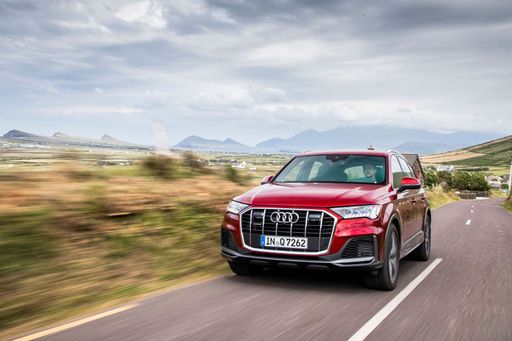 @ audi-mediacenter.com
@ audi-mediacenter.com
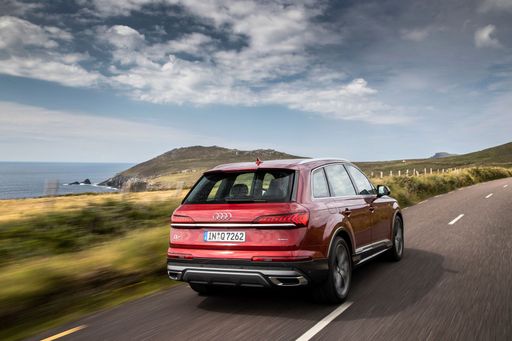 @ audi-mediacenter.com
@ audi-mediacenter.com
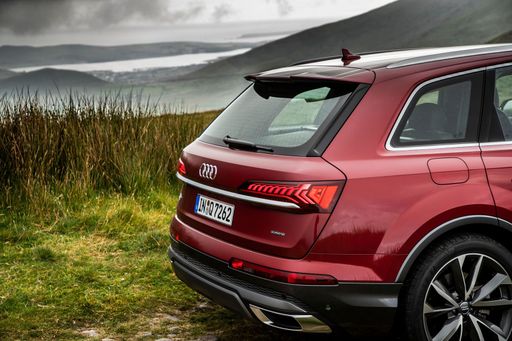 @ audi-mediacenter.com
@ audi-mediacenter.com
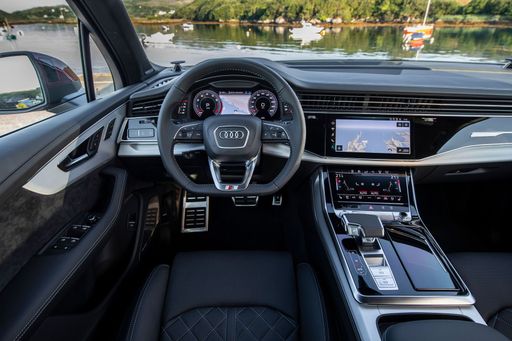 @ audi-mediacenter.com
@ audi-mediacenter.com
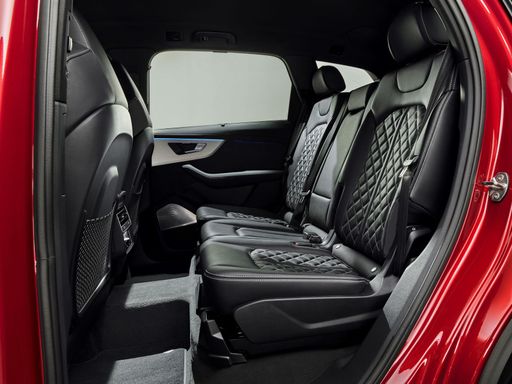 @ audi-mediacenter.com
@ audi-mediacenter.com
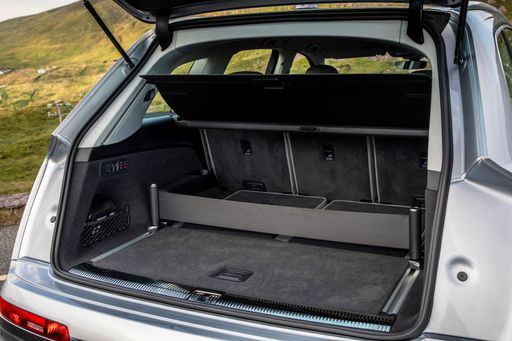 @ audi-mediacenter.com
@ audi-mediacenter.com
Hyundai i30
The Hyundai i30 stands out in the hatchback segment with its sleek design and modern features. It offers a comfortable ride with a well-crafted interior that caters to both driver and passengers. With its emphasis on safety and technology, the i30 provides a balanced driving experience suitable for urban and suburban environments.
details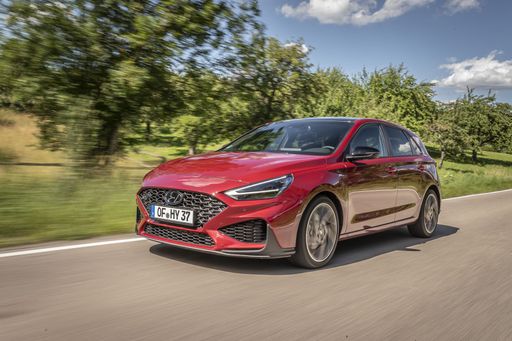 @ hyundai.news
@ hyundai.news
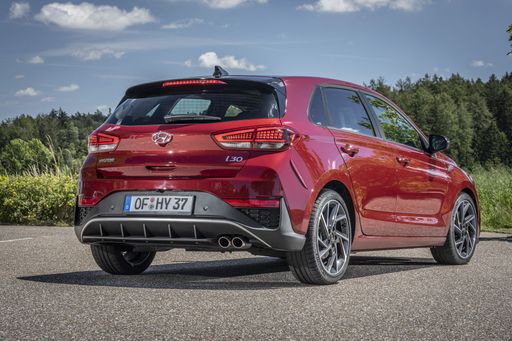 @ hyundai.news
@ hyundai.news
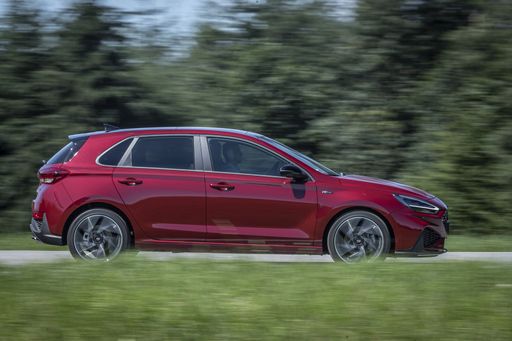 @ hyundai.news
@ hyundai.news
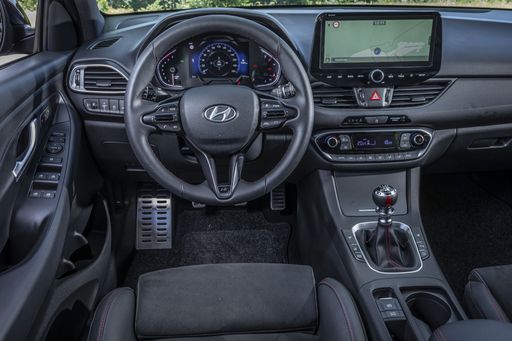 @ hyundai.news
@ hyundai.news
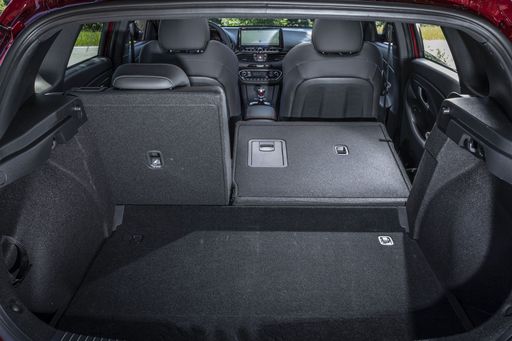 @ hyundai.news
@ hyundai.news

|

|
|
|
|
Costs and Consumption |
|
|---|---|
|
Price
69300 - 99000 £
|
Price
24000 - 29300 £
|
|
Consumption L/100km
1.2 - 12 L
|
Consumption L/100km
5.7 - 6 L
|
|
Consumption kWh/100km
-
|
Consumption kWh/100km
-
|
|
Electric Range
83 - 84 km
|
Electric Range
-
|
|
Battery Capacity
22 kWh
|
Battery Capacity
-
|
|
co2
28 - 272 g/km
|
co2
130 - 136 g/km
|
|
Fuel tank capacity
75 - 85 L
|
Fuel tank capacity
50 L
|
Dimensions and Body |
|
|---|---|
|
Body Type
SUV
|
Body Type
Hatchback
|
|
Seats
5 - 7
|
Seats
5
|
|
Doors
5
|
Doors
5
|
|
Curb weight
2055 - 2460 kg
|
Curb weight
1291 - 1407 kg
|
|
Trunk capacity
563 - 887 L
|
Trunk capacity
395 L
|
|
Length
5072 mm
|
Length
4340 mm
|
|
Width
1970 mm
|
Width
1795 mm
|
|
Height
1703 - 1735 mm
|
Height
1455 mm
|
|
Payload
640 - 885 kg
|
Payload
463 - 509 kg
|
Engine and Performance |
|
|---|---|
|
Engine Type
Diesel MHEV, Plugin Hybrid, Petrol MHEV, Petrol
|
Engine Type
Petrol, Petrol MHEV
|
|
Transmission
Automatic
|
Transmission
Manuel, Automatic
|
|
Transmission Detail
Automatikgetriebe
|
Transmission Detail
Schaltgetriebe, Automat. Schaltgetriebe (Doppelkupplung)
|
|
Drive Type
All-Wheel Drive
|
Drive Type
Front-Wheel Drive
|
|
Power HP
231 - 507 HP
|
Power HP
100 - 140 HP
|
|
Acceleration 0-100km/h
4.1 - 7.1 s
|
Acceleration 0-100km/h
9.6 - 13.1 s
|
|
Max Speed
226 - 250 km/h
|
Max Speed
178 - 197 km/h
|
|
Torque
500 - 770 Nm
|
Torque
172 - 253 Nm
|
|
Number of Cylinders
6 - 8
|
Number of Cylinders
3 - 4
|
|
Power kW
170 - 373 kW
|
Power kW
74 - 103 kW
|
|
Engine capacity
2967 - 3996 cm3
|
Engine capacity
998 - 1482 cm3
|
General |
|
|---|---|
|
Model Year
2024
|
Model Year
2024
|
|
CO2 Efficiency Class
G, B
|
CO2 Efficiency Class
D, E
|
|
Brand
Audi
|
Brand
Hyundai
|
Audi Q7
Audi Q7: A Benchmark in Automotive Excellence
The Audi Q7 continues to hold its ground as a versatile and luxurious SUV, offering a rich blend of cutting-edge technology, impressive performance, and comfort. With its recent facelift, the Q7 introduces innovative elements that cater to modern-day driving demands. Explore the technical details and unique attributes that make the Audi Q7 a class leader.
Engine Options and Performance
The Audi Q7 is available with a range of engine options designed to suit various needs and preferences. These include Diesel Mild-Hybrid, Plug-in Hybrid, and Petrol Mild-Hybrid configurations. The power output for these engines ranges from 231 to an exhilarating 507 PS, catering to both efficiency seekers and performance enthusiasts. The Audi Q7 can accelerate from 0 to 100 km/h in as little as 4.1 seconds, showcasing its athletic performance.
Innovative Technology Integration
The Audi Q7 integrates the latest technological advancements to enhance the driving experience. The intuitive Audi Virtual Cockpit and a comprehensive infotainment system ensure that the driver remains informed and entertained. The vehicle’s mild-hybrid systems significantly improve fuel efficiency and reduce emissions, highlighting Audi’s commitment to sustainability without sacrificing performance.
Advanced Safety and Driver Assistance
The Q7 is equipped with state-of-the-art safety features and driver assistance systems to ensure peace of mind on the road. Audi Pre Sense, adaptive cruise control, lane-keeping assist, and a 360-degree camera system work seamlessly together to help prevent accidents and enhance the driving experience.
Design and Interior Comfort
With its bold, sophisticated design, the Audi Q7 is both robust and stylish. The SUV offers configurations for five to seven seats, making it adaptable for families and groups. Meticulously crafted materials, adjustable seating, and advanced climate control systems provide a comfortable environment, even on long journeys.
Environmental Efficiency
The Audi Q7’s environmentally conscious engineering includes models with CO2 emissions as low as 28 g/km. For those opting for the Plug-in Hybrid variant, an impressive electric range of up to 84 km ensures emission-free mobility for daily commutes, reinforcing Audi's commitment to a sustainable future.
Conclusion
The Audi Q7 embodies a sophisticated blend of power, technology, and luxury, making it a standout in its class. Whether you’re looking for a spacious family vehicle, a tech-savvy companion, or a robust performance SUV, the Q7 delivers at every front, proving why it remains a popular choice for discerning drivers.
Hyundai i30
Introducing the Hyundai i30: A Blend of Performance and Innovation
The Hyundai i30 continues to impress the automotive world with its fine balance of performance, efficiency, and cutting-edge technology. As a quintessential hatchback, the i30 caters to a diverse range of drivers, offering a remarkable driving experience through its impressive powertrains and compact yet stylish design.
Dynamic Performance Options
At the heart of the Hyundai i30 lies a variety of engine choices designed to suit different driving preferences. The power output ranges from 100 PS to 280 PS, allowing drivers to choose an i30 that perfectly matches their performance needs. Whether you're inclined towards the spirited drive of the N Performance variants or prefer the efficiency of the mild hybrid versions, there’s a powertrain tailored for you.
Innovative Hybrid Technology
For those seeking enhanced fuel efficiency without compromising on power, the i30’s 48V mild-hybrid system offers a compelling option. Available with both manual and automatic transmissions, this innovative technology provides an ideal balance, reducing emissions and improving fuel consumption, with an impressive average of just 5.7 L/100km.
Sophisticated Design and Features
The Hyundai i30’s sleek design is complemented by thoughtful interior features that elevate the driving experience. With a boot space ranging from 395 to 450 litres, this hatchback ensures ample room for all your luggage needs. Furthermore, the car's aesthetic appeal is matched by its practical ergonomic layout, catering to both style enthusiasts and those seeking functionality.
Advanced Safety and Technology
The i30 is equipped with an array of advanced safety features, enhancing driver confidence and ensuring passenger safety. Its cutting-edge safety suite includes lane-keeping assist, forward collision warning, and adaptive cruise control. Additionally, the i30 offers a modern infotainment system, designed to keep you connected and entertained on every journey.
Conclusion: A Versatile Choice for Modern Drivers
The Hyundai i30 is more than just a hatchback; it’s a remarkable amalgamation of power, efficiency, and modern technology. Whether you're enticed by the high-performance models or the eco-friendly mild-hybrid variants, the i30 stands out as a versatile choice that meets the demands of today’s discerning drivers.
The prices and data displayed are estimates based on German list prices and may vary by country. This information is not legally binding.
